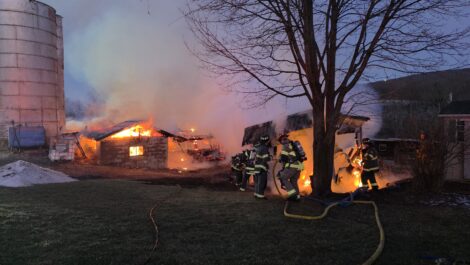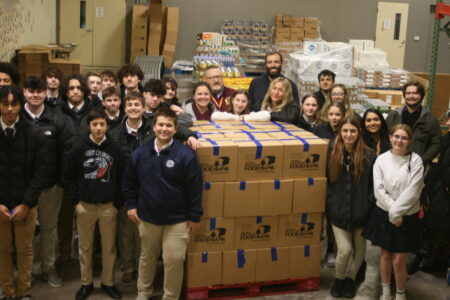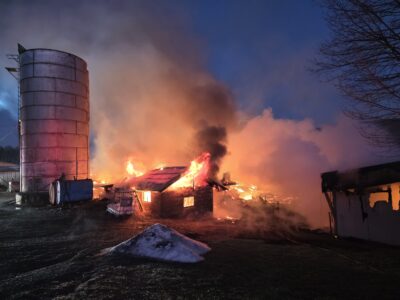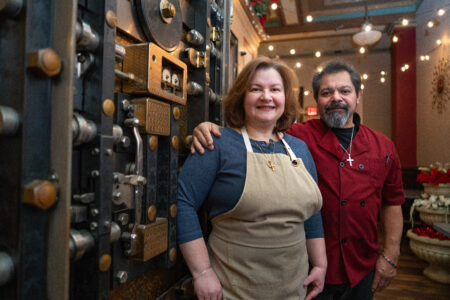Edward ‘Ted’ Lyon’s service to country, love of family remembered
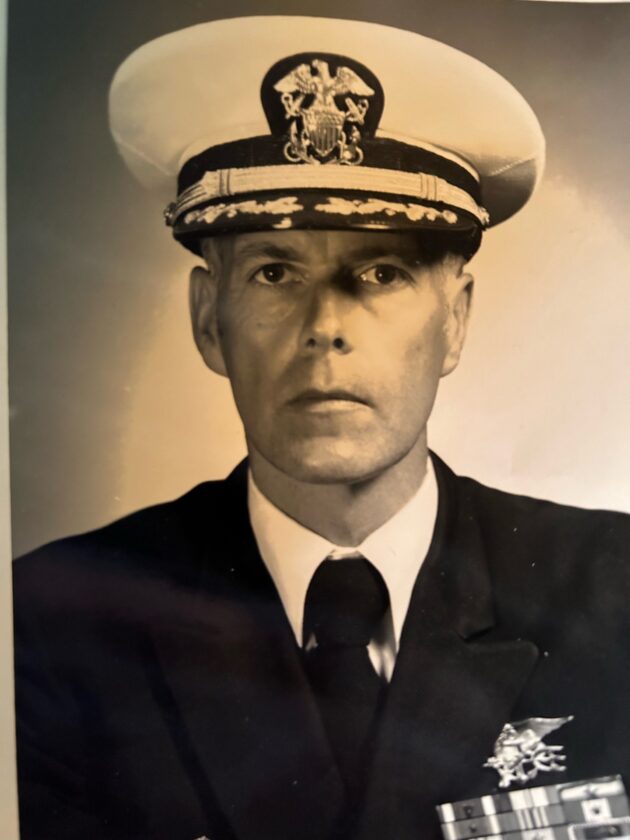
On his passing, Captain Edward “Ted” Lyon, United States Navy, Retired, left behind a legacy of love, for his family, his community and those under his command.
Lyon, who died Aug. 4, had accomplished, among the many things in his life, serving as a commander of one the first SEAL teams in the Navy and with the Commander in Chief of U.S. Naval Forces, Europe, in London. And, of course, as husband to Judith-“Judee”– for 69 years.
Judee tells how they married young.
“I went to Penn State when I was 17, and he was a senior, and, well, we fell in love, and we married my sophomore year,” Judee said.
“He was a pre med student, but he didn’t get into medical school, so he was going to be drafted,
and he said he would rather go into the Navy for three years than go into the army for two, so that’s what he did,” she explained.
He went to Officer Candidate School (OCS) and was commissioned in June, 1958. Lyon, his wife and new daughter moved to Coronado, CA.
He served with the beach master group and then he went to a staff position. It was while he was in Coronado that he underwent underwater demolition training (UDT). He graduated in 1960 and joined UDT 12.
Lyon liked diving, Judith said, plus he got double hazardous duty pay, she said.
It was at that time that the SEAL program was created.
“President Kennedy wanted there to be basically the unconventional warfare part in the Navy. The Army had theirs, the Green Beret and special forces, the Navy didn’t,” said Lyon’s son Andrew.
“So that’s what happened. In 1962 they formed the first two SEAL teams. And there was the West Coast SEAL Team One, and the East Coast SEAL Team Two,” he explained.
There were still UDT teams, but now they were given special training and they became more involved in clandestine operations.
“UDT and the SEALS were all the same people. They were all in the same group. They all went through the same thing to get to where they were and then the seals became a little more specialized, and maybe some of the more sneaky stuff. But it still was very new and a very small community back then, of course, but has grown into big stuff now,” he added.
The War in Vietnam was ramping up during that time and Lyon was there as a “UDT guy,” his son said. He was a part of the special operations component and also training the South Vietnamese.
“It was busy time, and then things got really crazy in the later 60’s. And then that’s when, I think he became the commanding officer of SEAL Team 2,” Andrew said.
“That was 1968 and things were really crazy…things were really getting heated up,” he said.
“People were getting killed…and it was sad,” his mom interjected.
Lyon’s career also took him to Europe where he served as the Commander in Chief of US Naval Forces Europe in London. He and his family, which had grown to include three children, were there for four years.
“They were still using the Pound Sterling and the exchange rate was really good for us and with the American dollar, and so I think we lived pretty well,” Judith said.
“We traveled all over. While we were there, we bought a VW bus. We had that all over England, Scotland, Wales. We even took it (when) he had a job with the Swedish Navy, and I camp-followed with the kids all over Sweden,” Judith said.
When the family returned to the United States. Lyon commanded UDT-21, graduated from the U.S. Army War College, served for the Chief of Naval Operations at the Pentagon, and was promoted to Captain.
According to information given by the family, Lyon next took command as Commodore of the Naval Special Warfare Group 2 (the Pinnacle Command of Special Warfare). He was then posted to the Joint Special Operations Group at MacDill Air Force Base, and later served again at the Pentagon.
In 1985, Lyon and his wife completed Defense Intelligence and language training before reporting to Jakarta, Indonesia, where he served as the US Naval Attache.
“For the job he was taking, which is a naval attache, you’re an overt spy, and women are much better at listening,” Judith said.
“Your job is to get information and women are always better at that,” she said.
Part of their training included languages, which Judith said she was a better student than her husband.
“I had to run a house but we had little exercises with the FBI and CIA,” she explained.
“All the people over there, all the different countries that have embassies over there, so the people are all socializing and talking. So you get a chance to get to know people and socialize and pick up information and learn how to take the right kind of pictures and all that stuff,” Andrew said.
Not all of them, Judith admitted, had the training the Americans had and they had the disadvantage of not speaking English.
“I felt sorry for them…but we had a good time,” she said.
“Your job over there is to entertain a lot. You have people to your house and you get them comfortable and talking and then you report. It’s overt. They know you’re doing it. They’re doing it too,” she added.
Lyon retired from the military at 53. He eventually settled in the area at Lochabar Cottage in the Nippenose Valley.
Although they had never lived here as a family, the Lyons had roots here stretching back to the early developers of’ area.
During their retirement years, the Lyons purchased homes along West Fourth Street in the historical district of Williamsport and renovated them, opening them up for Victorian Christmas. They were very active in Preservation Williamsport.
Andrew shared a story which he really wanted to tell so that people would know the kind of person his dad was.
“In the early 90s in Virginia Beach, every year they had these reunions, and that’s a pretty big turnout. And they have an event scheduled. There’s a get-together on Friday, then there’s a demonstration on Saturday, and maybe a dinner. Then there’s a big picnic on Sundays, that kind of thing. So it’s 1991, I think, and we all went down, because they would have been living here, of course, but we went down and my sister was there. They were living in Virginia Beach. She married a SEAL as well,” Andrew said.
“We’re all there, and Friday night, they have this thing called the registration, and it’s held in one of these halls on the base down in Little Creek, Virginia. It’s July, and it’s Virginia Beach…everybody’s seeing people they haven’t seen in a while. And of course, we grew up with people. We’re seeing people. This is a really neat time. So picture that we’re standing around and, you know, it’s packed in this hall and a guy comes up and he stands, he’s just a few feet away from us, standing at attention.. And of course, we stop, and we look over, and he says to my dad, sir, you don’t remember me, but I remember you. He said you were an officer with SEAL Team 2 in 1968 and I want to share with you what happened,” Andrew continued.
The soldier told Lyon that he remembers how his platoon was getting ready to go to Vietnam and as their commanding officer, he had gathered them together and said,”gentlemen, you’re going to war. Some of you aren’t coming home, but we are here to support you. We want to make sure that we do everything we can do to make sure your things are in order with your families.”
“And this guy, the way he told that story, was like he says, Sir, you told me that and I’ve never, ever in my life, forgotten that,” Andrew said.
“This guy would have been very probably a fresh out of training guy, and he came up, and it was like he said, I’ve never forgot those words. It was so important for me, because we did take care of things…he just really talked to my dad. It was powerful, because he did it at attention not in any drunken way or any stupid way…That’s how my dad was. He took care of his people, you know, and he addressed them as they needed to be addressed,” he added.

